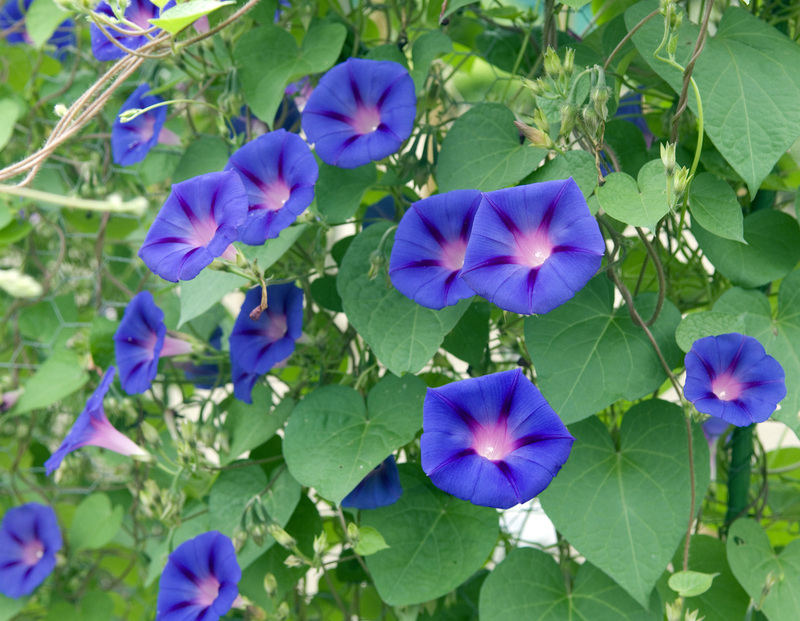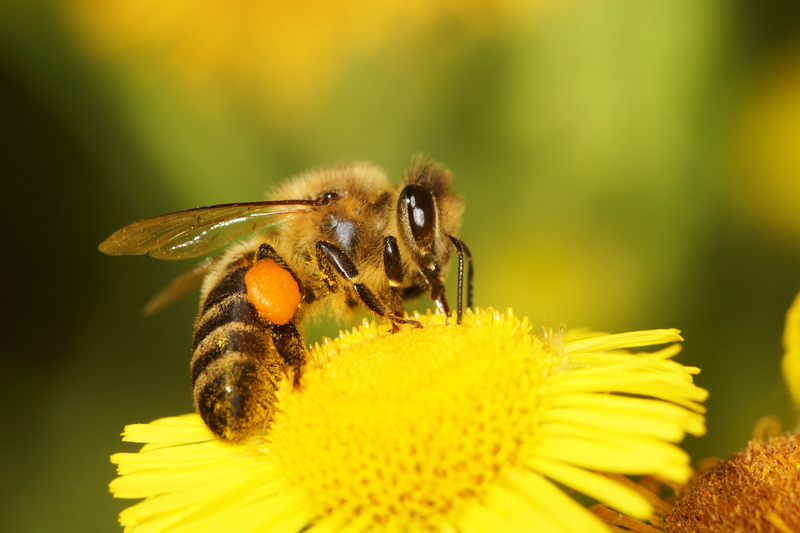Bountiful Soil from Organic Waste: A Green Revelation
Posted on 18/06/2025
Bountiful Soil from Organic Waste: A Green Revelation
Unlocking the incredible benefits of turning organic waste into rich, nourishing soil can be a transformative step for individuals, communities, and the environment. If you've ever wondered how kitchen scraps and yard trimmings can spark a green revolution, you're in the right place. In this article, we delve deep into the science, methods, and far-reaching benefits of producing fertile soil from organic waste--ushering in a true green revelation.

Understanding the Potential of Organic Waste
Each year, billions of tons of organic waste are generated globally, with the majority ending up in landfills and contributing to methane emissions. Transforming organic waste into bountiful, fertile soil represents an eco-friendly solution that tackles two critical issues simultaneously: reducing landfill waste and regenerating our earth's soils. Let's take a closer look at what exactly constitutes organic waste and the myriad opportunities it offers.
What is Organic Waste?
- Food scraps (vegetable peels, fruit rinds, coffee grounds, eggshells)
- Yard debris (fallen leaves, grass clippings, small twigs)
- Paper products (non-glossy paper, cardboard, napkins)
- Other biodegradable materials (hair, untreated wood shavings, natural fibers)
Unlike plastics or metals, organic waste is naturally biodegradable, breaking down into simpler components that can nourish soil life and plants. Creating bountiful soil from this waste is not only practical but pivotal in the journey toward sustainable living.
The Science Behind Composting: Nature's Recycler
At the heart of this green revelation is the process of composting--nature's original method of recycling. When organic matter breaks down, microorganisms such as bacteria, fungi, and actinomycetes turn it into humus, a dark, nutrient-rich material essential for plant growth.
Key Stages of Composting
- Mesophilic Phase: Begins with the breakdown of simple sugars and starches at moderate temperatures by mesophilic microorganisms.
- Thermophilic Phase: As the compost pile heats up, thermophilic bacteria take over, breaking down proteins and complex carbohydrates, and killing most pathogens and weed seeds.
- Cooling Phase: Temperatures subside and mesophilic microbes return to complete the decomposition process.
- Maturation Phase: The pile gradually stabilizes into mature compost--earthy, dark, and full of nutrients.
This natural cycle mirrors the forest floor, where fallen leaves and dead organisms are steadily reused as building blocks for future life.
Methods for Creating Bountiful Soil from Organic Waste
Whether you live in a suburban home or a city apartment, there are multiple ways to generate fertile soil from organic waste. Let's explore some of the most popular and effective methods.
Backyard Composting
Traditional backyard composting uses a simple bin or heap to transform household and garden waste into rich soil. Here's how it works:
- Collect Your Organic Materials: Use a kitchen caddy for food scraps and a separate container for garden waste.
- Layer Greens and Browns: Alternate nitrogen-rich "greens" (food scraps, fresh grass) with carbon-rich "browns" (leaves, shredded paper).
- Maintain Moisture and Aeration: Keep the pile damp but not soggy and turn regularly for oxygenation.
- Harvest the Compost: After a few months, the result is bountiful, crumbly, and fertile soil ready to use.
Vermicomposting
This method harnesses the power of composting worms (mainly Eisenia fetida, aka red wigglers) to convert organic waste into worm castings--one of the world's most potent natural fertilizers.
- Ideal for small spaces and apartment dwellers
- Produces a highly concentrated, nutrient-rich compost
- Worm bins are easy to maintain and odor-free
Bokashi: A Fermentation Revolution
Bokashi is an anaerobic fermentation approach developed in Japan. Unlike traditional composting, bokashi systems can process meats, dairy, and cooked foods alongside fruit and vegetable scraps.
- Quickly ferments organic waste in airtight containers
- The pre-compost product enriches soil and speeds up future composting
- Minimal odor and compact footprint
Municipal and Community Composting Initiatives
If personal composting isn't feasible, many towns and cities now offer organic waste collection services:
- Organic waste is gathered and processed at industrial composting facilities
- Finished compost is redistributed to gardens, parks, and farms
- Reduces landfill pressure and cuts municipal greenhouse gas emissions
Unveiling the Benefits: More than Fertile Soil
The movement to renew our soils through organic waste recycling produces a stunning array of benefits for individuals, communities, and the planet.
Environmental Benefits
- Landfill Reduction: Diverting organic waste from landfills significantly lowers methane emissions, a potent greenhouse gas.
- Climate Change Mitigation: Carbon sequestration in improved soil structure helps trap carbon dioxide, reducing atmospheric levels.
- Pollution Prevention: Compost acts as a natural filter, preventing pollutants from leaching into waterways.
Agricultural and Gardening Advantages
- Soil Enrichment: Adds vital nutrients and trace minerals that are often lacking in overworked, chemically treated soils.
- Improved Structure: Increases soil porosity, aeration, and water retention, necessary for robust plant growth.
- Enhanced Microbial Activity: A thriving soil biome fosters healthy, disease-resistant crops.
Economic & Social Impacts
- Reduced Waste Management Costs: Composting eases municipal landfill expenses and extends landfill lifespan.
- Community Building: Neighborhood compost programs and community gardens foster cooperation and green spaces.
- Job Creation: The emerging green economy around composting and soil regeneration supplies new employment opportunities.
The Role of Nutrient-Rich Soils in a Sustainable Future
Healthy, bountiful soils derived from organic waste are the backbone of regenerative agriculture and sustainable food systems. When the soil teems with nutrients and biological life, crops become more nutritious, resilient to climate stresses, and productive without heavy synthetic inputs.
Carbon Cycling and Ecosystem Health
Soil composed of organic matter from recycled waste supports complex food webs, from microscopic bacteria to earthworms and beyond. These organisms contribute to:
- Breaking down organic material into plant-available forms
- Fixing nitrogen and other crucial elements into the soil
- Building soil aggregates that prevent erosion
Regenerative practices like compost application reverse soil degradation, restore ecosystems, and ensure food security for generations to come.
Getting Started: How Every Home Can Join the Green Revelation
Contributing to the wave of fertile soil creation from organic waste is more accessible than ever. Follow these steps to become a steward of the earth in your own home:
Simple Steps for Success
-
Set Up a Separation System:
- Install a countertop compost bin for kitchen scraps
- Designate a bin for yard waste if you have outdoor space
-
Choose Your Composting Method:
- Backyard bin, worm composter, or bokashi? Pick what fits your space and needs
- Check for local curbside organics programs as an alternative
-
Educate and Involve:
- Teach children and neighbors about the importance of composting and soil health
- Join local compost clubs, attend workshops, and exchange tips and resources
Tips to Avoid Common Pitfalls
- Balance Greens and Browns: Too many food scraps can make your pile soggy or smelly--balance with dry carbon-rich materials.
- Avoid Harmful Contaminants: Do not add plastics, metals, or toxic elements that could ravage the microbial life in your compost.
- Patience is Key: Good compost takes time; resist the urge to use unfinished compost which may still be actively decomposing.
Conclusion: Embracing the Soil Revolution
The journey of converting organic waste into bountiful soil is more than a gardening trend--it's a vital component of planetary stewardship and personal responsibility. By participating in this movement, you are helping to regenerate depleted soils, reduce waste, and contribute to a greener, healthier world. The green revelation starts in your home, your community, and--most importantly--in your hands.
Start today, and transform your waste into a legacy of lush abundance for years to come.

Frequently Asked Questions
What are the best organic wastes for composting?
- Fruit and vegetable scraps
- Coffee grounds and filters
- Eggshells
- Yard clippings and leaves
- Shredded paper and untreated cardboard
What should be avoided in soil enrichment compost?
- Meat, bones, dairy products (unless using bokashi)
- Glossy or colored paper
- Plastic, glass, or metal
- Diseased plants or invasive weeds
- Pesticide-treated material
How long does it take to make compost from organic waste?
Composting times vary, but with regular attention, most backyard composters will yield usable soil in 3-6 months. Methods like vermicomposting and bokashi may deliver quicker results.
Can city dwellers participate in this green movement?
Absolutely! Indoor worm bins, bokashi setups, or city-run food waste collection make it easy for urban residents to join the green revolution for bountiful soil.
Final Thoughts: Your Role in a Sustainable Tomorrow
Embracing the mission to create bountiful soil from organic waste leads to healthier gardens, thriving ecosystems, and a cleaner planet. Your kitchen scraps are not garbage--they are the seeds of regeneration. Join the green revelation and help cultivate a future where waste truly becomes wealth for our world's precious soil.

